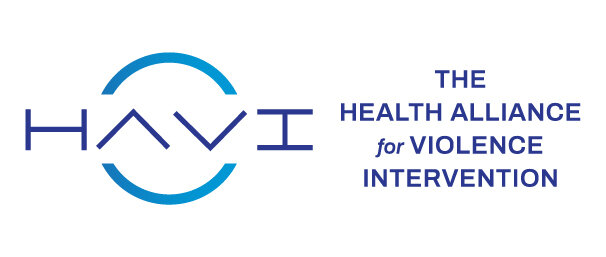HAVI Convenes Nation’s Largest Gathering of Violence Intervention Advocates at 11th Annual Conference in September
Participants Gather During Watershed Moment of Growing National Support for Proven Violence Intervention Strategies
August 19, 2021— Amid a national push by local, state and national elected officials to increase funding—a record $5B request in federal dollars—for proven violence intervention strategies to slow Covid-19-induced record levels of gun violence, health leaders, advocates, front-line workers and researchers will join the Health Alliance for Violence Intervention (the HAVI) for its annual conference—the largest of its kind—to educate and strategize on how best to expand the adoption of these proven strategies.
From September 21-23, the HAVI—an organization working to build a national network of hospital-based violence intervention programs—will bring together hundreds of medical professionals, community violence intervention specialists, and policy experts for its annual conference under the banner: Forging a New Era of Equity. The conference, which will be held virtually this year, will honor frontline violence intervention workers, health professionals, and community leaders dedicated to racial and health equity and to serving survivors of violence and supporting their path towards healing and transformation.
“There is a way forward, a way that unites everyone in the struggle to end violence, and it starts with valuing the contributions of those who work on the frontlines to heal victims of violence and their communities. By honoring the heroes whose work is shifting the narrative around violence to a public health discussion, we acknowledge there can be no solution without community because, in fact, community is the solution,” said Fatimah Loren Dreier, Executive Director of the HAVI. “This conference is a space to organize and share technical skills and resources for the expansion of the vital networks necessary to foster innovation within the community violence intervention ecosystem.
The HAVI virtual conference will bring together hundreds from across the field of violence intervention and prevention, with dozens of workshops geared toward the critical issues facing individuals and organizations working to develop, expand, or promote violence intervention programs in hospitals and communities nationwide.
The conference keynote will feature a powerful discussion between Ibram X. Kendi, a New York Times #1 bestselling author and winner of the National Book Award, and the HAVI’s Executive Director, Fatimah Loren Dreier, on Wednesday, September 22.
The largest national conference of its kind, the event will offer thought-provoking panel discussions and workshops on public health approaches to violence, racial equity, funding for hospital-based violence intervention programs and other violence intervention strategies, trauma recovery, public policy to address community violence, and more. There will also be peer learning opportunities, one-on-one networking sessions, virtual social gatherings, a live-streamed DJ set, and social media giveaways.
Other panels will include training for violence intervention specialists, workshops on the intersection of violence, trauma and community, discussions on women on the frontline and best practices workshops designed to help health providers develop and improve violence prevention services and offerings.
Last year, at the height of the COVID-19 Pandemic, the HAVI convened 600+ stakeholders virtually from government, healthcare, philanthropy, and frontline violence prevention professionals to share best practices, lessons from the field, and research on violence intervention, healing equity, and community partnerships to bring this powerful work to scale.
This year’s conference—also virtual—is expected to bring together similar numbers of participants looking to better understand the opportunities and funding available to hospitals and community organizations that fight against violence. Over the past year, advocates have seen a historic increase in attention to the need for evidence-based violence prevention strategies. This has opened the door to critically needed funding opportunities, such as the use of Medicaid to reimburse the services provided by violence intervention programs as well as commitments to use American Rescue Plan (ARP) funding to expand these programs. Advocates are also optimistic that the Biden Administration’s $5 billion investment for violence intervention, which is currently tied up in the Congressional budget reconciliation process, will be freed up to empower cities, hospitals and communities with crucial resources in their ongoing battle to end the bloodshed and gun violence that has stricken many parts of the nation.
“It is critically important that this money be available for cities facing devastating levels of gun violence and murders. These resources would empower our frontline heroes, expand their reach, and most importantly, provide hope to those communities that feel powerless and abandoned,” said Kyle Fischer, director of policy for the HAVI and a full-time emergency room physician.
The HAVI is a national organization working to build a network of hospital-based violence intervention programs (HVIPs), which provide services for victims of violent crime while they are recovering from their injuries to reduce the likelihood that they commit gun violence or are victimized in the future. Currently, the HAVI works in over 85 cities across the country, as well as in the United Kingdom and El Salvador, to develop and implement HVIPs, which are crucial resources in addressing the gun violence crisis that is disrupting health ecosystems in communities nationwide. Additionally, the HAVI works to shift narratives around community violence and highlight the systemic inequalities that increase the likelihood that a community will be disproportionately affected by violence. The organization also works with its members to advance policy and research that address violence as a public health emergency.
Contact us for additional information and media inquiries.


